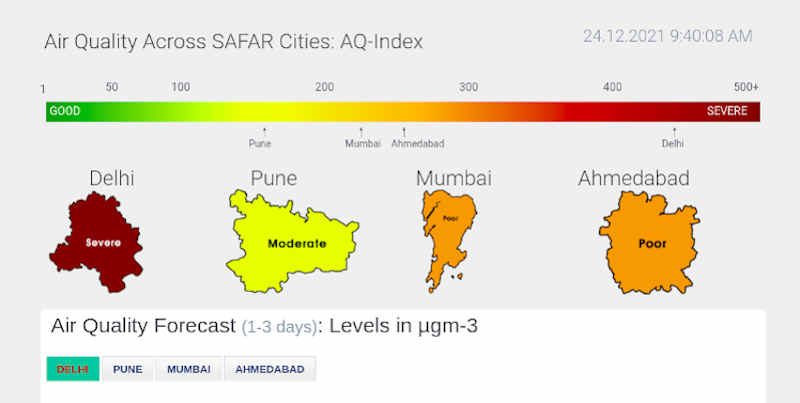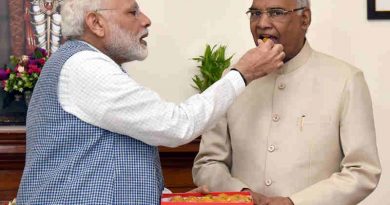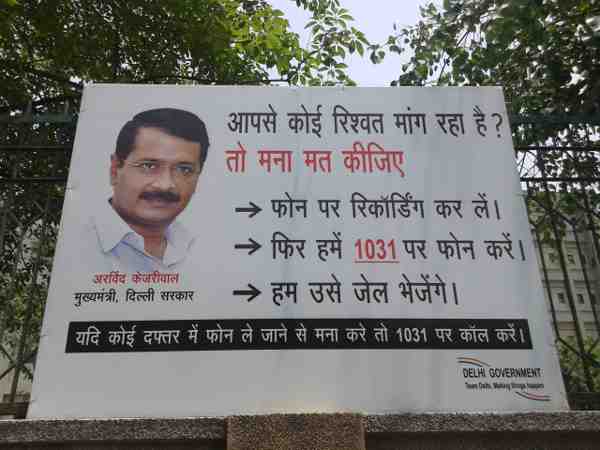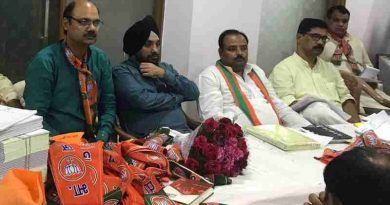Delhi Air Quality Deteriorates as Corrupt Govt Allows Pollution Activities
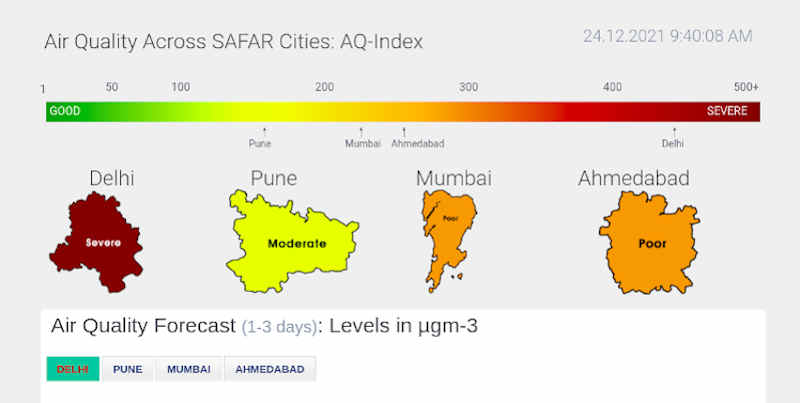
The Delhi Government, pollution-control agencies, and the Supreme Court of India want environmentally hazardous construction projects to continue in the city.
By RMN News Service
The air quality in India’s capital New Delhi – which continues to be the most polluted national capital in the world – has worsened as the government allowed all the pollution activities in the city.
After a brief ban on construction work – which is the major cause of pollution in Delhi – the government on December 20 had lifted the construction ban and allowed entry of polluting trucks in the city.
As a result, the pollution has crossed the deadly limits and – according to research – killing at least 150 people everyday in Delhi while thousands of local citizens are falling sick.
According to the System of Air Quality and Weather Forecasting And Research (SAFAR), the air quality in the national capital deteriorated on today (December 24) just 4 days after allowing pollution-spreading activities and slipped to the ‘severe’ category.
The overall Air Quality Index (AQI) in Delhi on December 24 reached 425, which is a lethal level that can cause immediate deaths.
But strangely the Delhi Government, pollution-control agencies, and the Supreme Court of India want environmentally hazardous construction projects to continue in the city. One of the reasons for this permission is corruption, as huge corruption is involved in construction projects while most of them are avoidable.
The Air Quality Index (AQI) in Delhi remains at hazardous or unhealthy levels throughout the year. But the government and pollution-control agencies take only some ineffective, temporary measures for a couple of weeks to control pollution.
An interactive tool on the Breathe Life 2030 website shows a particulate matter (PM2.5) level of 143 micrograms per cubic metre (annual mean) in Delhi. This is over 14 times more than the WHO (World Health Organization) safe level of 10 µg/m3. Simply put, the people of Delhi inhale poison from the air everyday during the entire year.
Since politicians, bureaucrats, and officials of pollution-control agencies are not properly skilled and qualified, they take only some perfunctory steps every year to deal with the complex pollution problem.
Although the Supreme Court of India is supposed to protect the environmental rights of the citizens, the court judges only hold some meaningless hearing sessions with the government lawyers without protecting the rights of citizens.
The Supreme Court has even ignored the fact that the United Nations Human Rights Council (UN HRC) has recognized for the first time that having a clean, healthy, and sustainable environment is a human right.
While more than 80 percent of UN Member States already recognize the right to a healthy environment through national law, court decisions, or regional treaties, the new Resolution still marks a watershed moment in the fight against the triple planetary crisis of climate change, nature and biodiversity loss, and pollution and waste.
Meanwhile, the “Toxic City” report highlights the perennial problem of air pollution in Delhi and surrounding areas with certain preventive recommendations for the government, pollution-control agencies, and courts to reduce the level of pollution.

